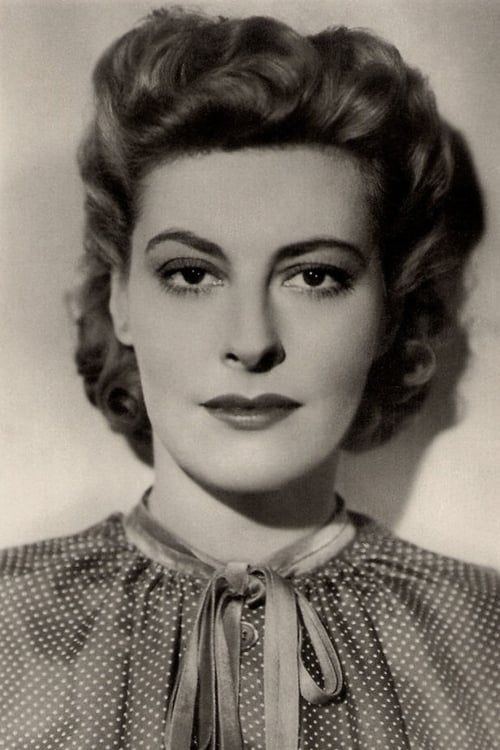Marianne Hoppe
Also Known As: not available
Biography: Born in Rostock, Hoppe became a leading lady of stage and films in Germany. She was born into a wealthy landowning family and was initially privately educated on her father's private estate. Later she attended school in Berlin and in Weimar, where she began to attend theatre.[1] Hoppe first performed at 17 as a member of Berlin's Deutsches Theater under director Max Reinhardt. In 1935 she was hired by the controversial German actor and Director of the Prussian State Theatre under the Third Reich, Gustav Gründgens. They were married from 1936-46, until their divorce. Speaking years after the marriage had ended Hoppe stated, "He was my love, but never my great love, that was work."[1] One of the characters in the film Mephisto was reportedly based on her. Hoppe made no secret of her contacts with the Nazi elite in the 1930s/40s, including being invited to dinner by Hitler.[2] Her role in Der Schimmelreiter (The Rider of the White Horse, 1934) made her famous almost overnight, while her "Aryan" face made her a darling of the Nazi elite.[1] Later Hoppe would label this period of her life as "the black page in my golden book".[1] During her time acting at the home of the Prussian State Theatre, the Schauspielhaus, Hoppe developed her analytical approach to acting, which she stated consisted in her "taking apart every sentence" and giving the use of language a brilliance. This method was to be associated with Hoppe throughout her working life.[1] In 1946 her only child, Benedikt Johann Percy Gründgens, was born. Four years later after her divorce from Gründgens, Hoppe had a great success as Blanche Dubois in Tennessee Williams's A Streetcar Named Desire, and increasingly played avant-garde roles, written by authors such as Heiner Muller (Quartett, 1994) and Thomas Bernhard, who became her partner in private life as well. She became a favourite of the young and iconoclastic directors Claus Peymann, Robert Wilson and Frank Castorf. Hoppe died in Siegsdorf, Bavaria, in 2002 from natural causes, aged 93. "German theater has lost its queen", said Claus Peymann of the Berliner Ensemble, whose theatre featured Hoppe's last performance, in Bertolt Brecht's Resistible Rise of Arturo Ui, in December 1997.[2] In one of her last interviews Hoppe stated, "I have a go at happiness every day. That takes discipline, a virtue every halfway decent actor should have."
Department: Acting
Place of Birth: Rostock, Germany
Adult: No
Birthday: April 26, 1909
Age: 116 years old
Gender: Female
Deathday: October 23, 2002
Popularity:
Known For:
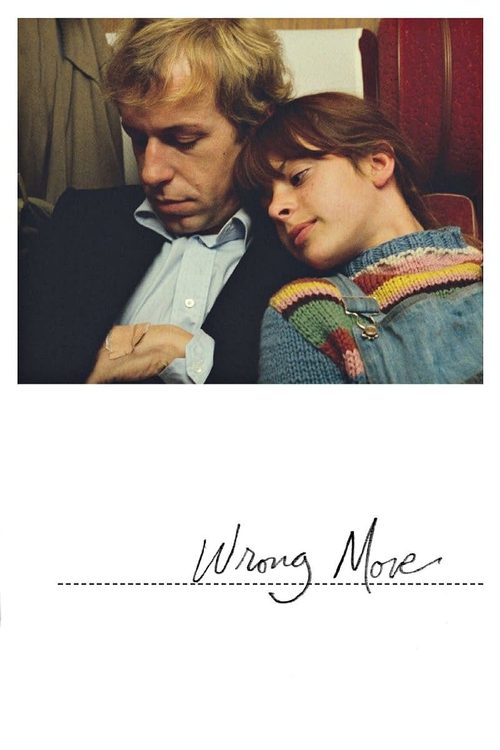
Wrong Move

Overview: Six days in the life of Wilhelm: a detached man without qualities. He wants to write, so his mother gives him a ticket to Bonn, telling him to live. On the train he meets an older man, an athlete in the 1936 Olympics, and his mute teen companion, Mignon. She's an acrobat in market squares for spare change.
Genres: Drama
Original Language: de
Release Date: 1975-03-14
Popularity:

Ten Little Indians
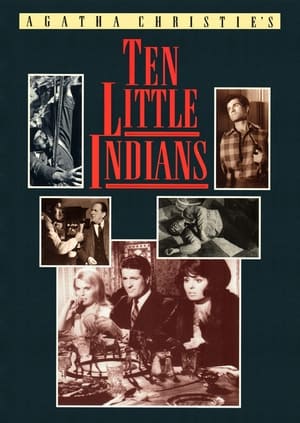
Overview: Ten strangers are invited as weekend guests to a remote mountain mansion. When the host doesn't show up, the guests start dying, one by one, in uniquely macabre Agatha Christie-style. It is based on Christie's best-selling novel with 100 million sales to date, making it the world's best-selling mystery ever, and one of the most-printed books of all time.
Genres: Crime Mystery Thriller Horror
Original Language: en
Release Date: 1965-07-31
Popularity:
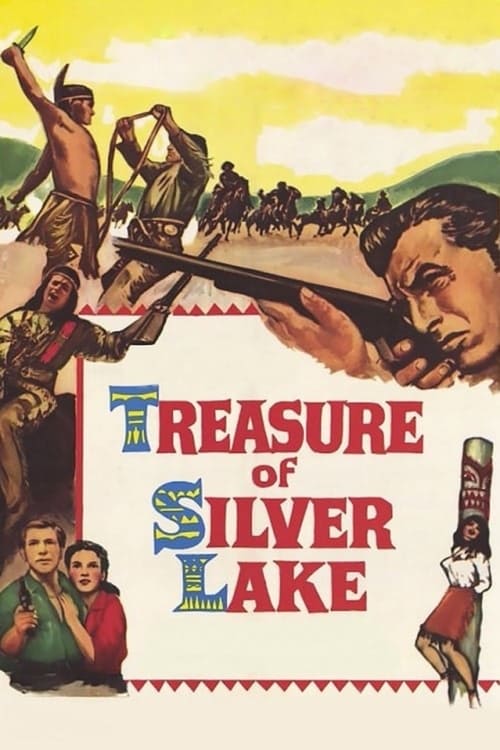
Treasure of Silver Lake

Overview: Fred Engel's father is murdered by Colonel Brinkley in order to acquire a treasure map, however the Colonel only acquires half of it, the other half as held by Mrs. Butler. Discovering the scene of the crime, Old Shatterhand and Winnetou help Fred bring his father's murderer to justice and locate the treasure of Silver Lake.
Genres: Western Adventure
Original Language: de
Release Date: 1962-12-12
Popularity:
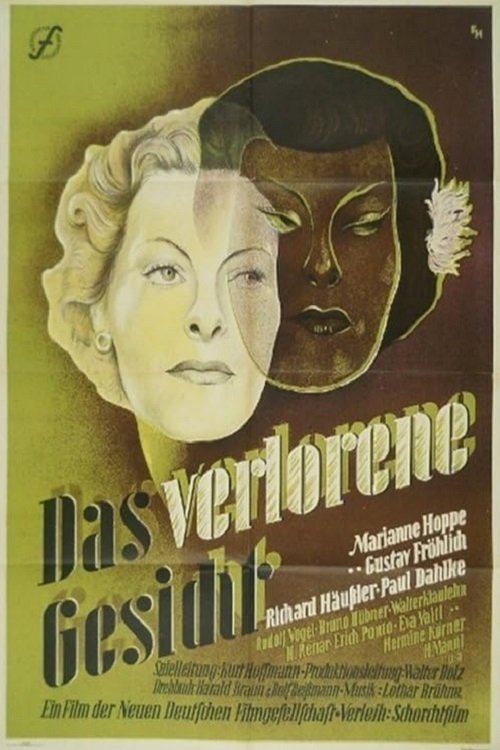
Das verlorene Gesicht

Overview:
Genres: Thriller
Original Language: de
Release Date: 1948-11-19
Popularity:

Hitler's Hollywood

Overview: Film journalist and critic Rüdiger Suchsland examines German cinema from 1933, when the Nazis came into power, until 1945, when the Third Reich collapsed. (A sequel to From Caligari to Hitler, 2015.)
Genres: Documentary History
Original Language: de
Release Date: 2017-02-23
Popularity:
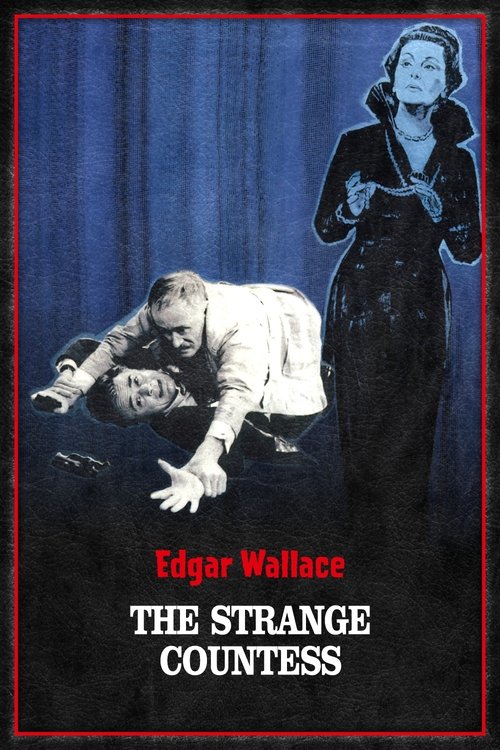
The Strange Countess

Overview: Strange fortune hunters are behind a girl's murder in this Edgar Wallace tale.
Genres: Crime
Original Language: de
Release Date: 1961-11-08
Popularity:

Romance in a Minor Key

Overview: A grieving husband tries to uncover the truth behind his wife's suicide, leading him to discover a tragic tale of infidelity and redemption.
Genres: Drama Romance
Original Language: de
Release Date: 1943-06-25
Popularity:
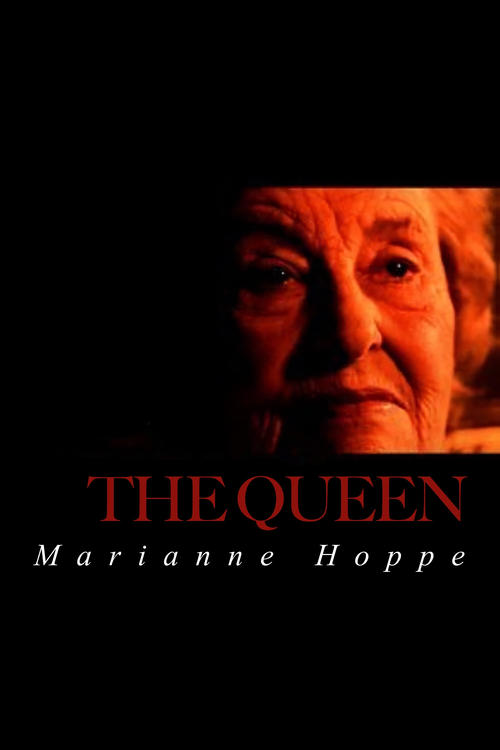
The Queen – Marianne Hoppe

Overview: Werner Schroeter's lovely and touching portrait of the great German actress Marianne Hoppe, whose career spanned from the glory days of the Weimar era through the Nazi years to a postwar return to the stage in Shakespeare, Tennessee Williams, and experimental productions by Robert Wilson and Heiner Müller.
Genres: Documentary
Original Language: en
Release Date: 2000-12-07
Popularity:
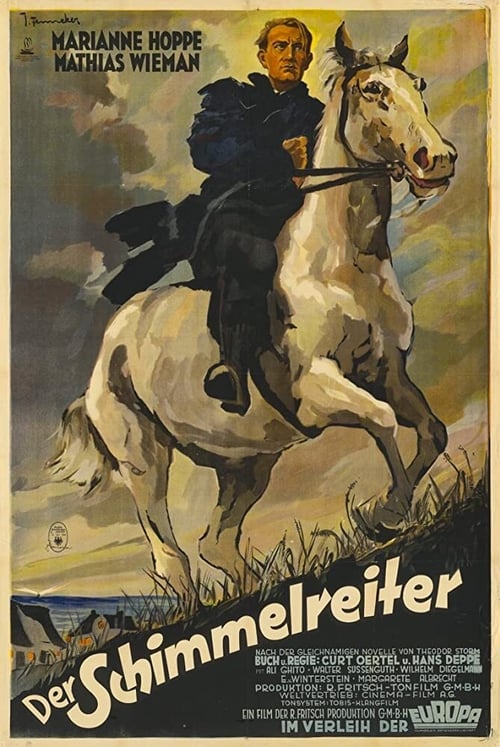
The Rider on the White Horse

Overview: Freely adapted from Theodor Storm's novella of the same name.
Genres: Drama
Original Language: de
Release Date: 1934-01-11
Popularity:
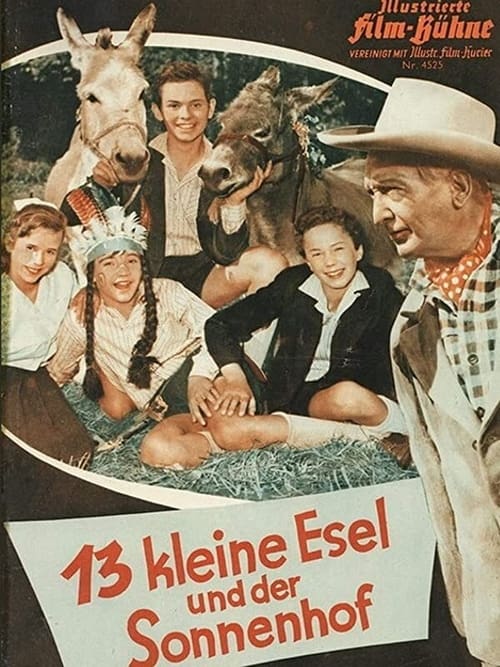
13 Little Donkeys and the Sun Court

Overview:
Genres: Comedy
Original Language: de
Release Date: 1958-10-31
Popularity:
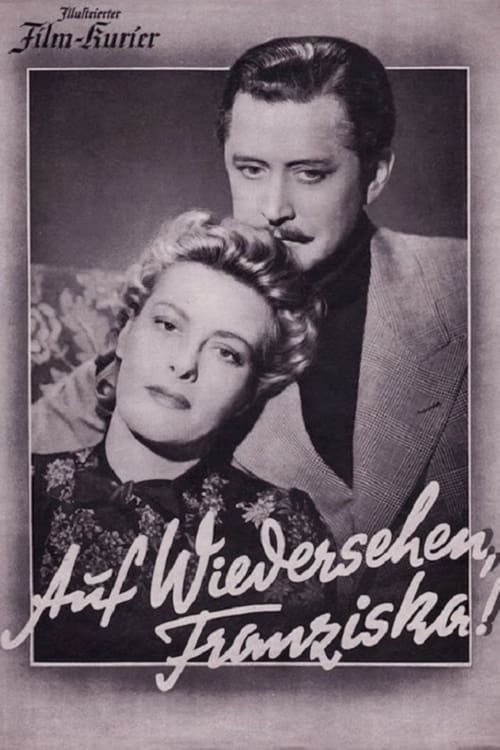
Goodbye, Franziska

Overview: The relationship between Franziska and her partner Michael, a globetrotting photojournalist, remains strained due to their constant separation, until tragedy strikes, forcing Michael to come home and to make a decision about their future.
Genres: Drama Romance
Original Language: de
Release Date: 1941-04-24
Popularity:
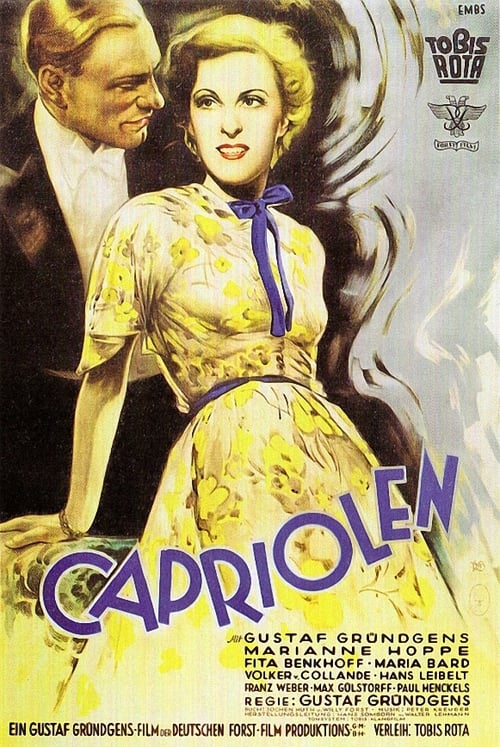
Love in Stunt Flying

Overview: Mabel is a successful pilot who hates sensational media, but falls in love with Jack, a womanizer journalist with conservative views on gender. When the two of them get married, they make a deal: Mabel will cease to fly as long as Jack doesn't interview any more women. But how long can they keep their pact?
Genres: Comedy
Original Language: de
Release Date: 1937-08-09
Popularity:
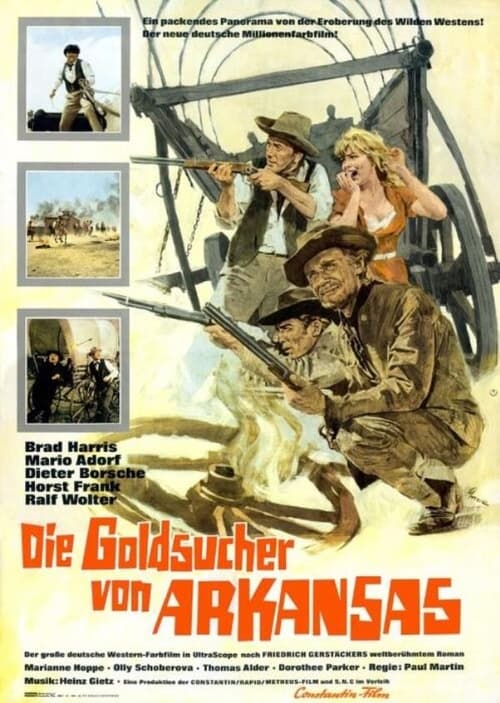
Conquerors of Arkansas

Overview: Based on the novel by Friedrich Gerstäcker, the film, set entirely in the state of Arkansas, tells of the conflict of interests between the local townspeople and homesteaders on the surrounding land, miners arriving during the gold rush, cowboys and cattle thieves who cause problems in the area, and the native tribes of the region. Two adventurers arrive in town and try to restore peace to it and its inhabitants.
Genres: Western
Original Language: de
Release Date: 1964-11-19
Popularity:
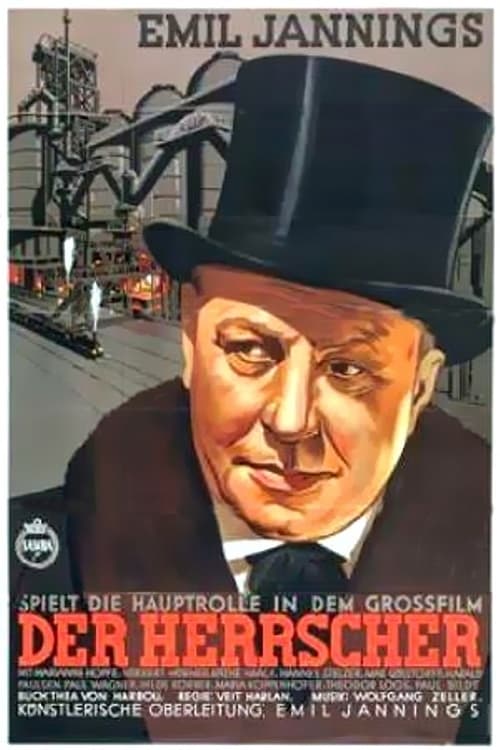
The Sovereign

Overview: Der Herrscher (The Sovereign) was based on Before Sunset, a play by Gerhart Hauptmann. The great Emil Jannings stars as Mathias Clausen, a self-made businessman who is forced to do a great deal of soul-searching when his wife unexpectedly dies. Determining to start life anew, he falls in love with his secretary Inken (Marianne Hoppe) and impulsively takes a vacation to Italy. Clausen's selfish grown children, not wishing to share their father's affections -- nor his money -- with his new wife-to-be, go to court demanding that Clausen be declared mentally incompetent. Upon finding this out, Clausen flies into a rage, leaving the audience to wonder whether or not he really as gone off his trolley. Der Herrscher was directed by Veit Harlan, more famous (or notorious) for his viciously anti-Semitic Jud Suess (1940).
Genres: Drama
Original Language: de
Release Date: 1937-03-17
Popularity:
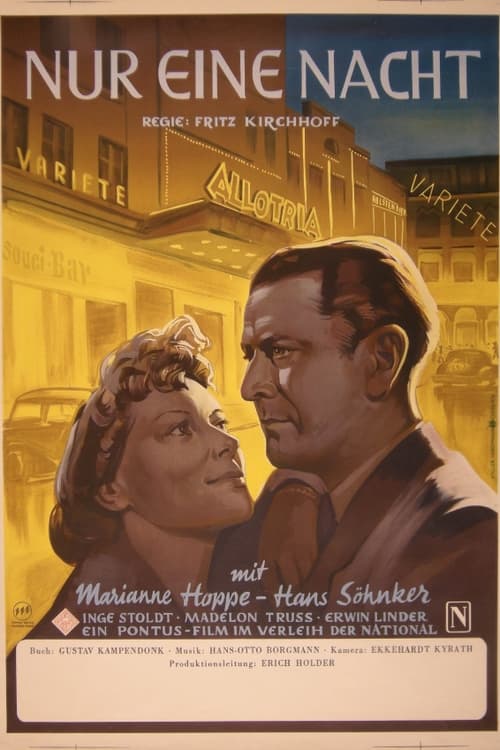
Nur eine Nacht

Overview:
Genres: No genres available
Original Language: de
Release Date: 1950-04-21
Popularity:

Schloß Königswald

Overview:
Genres: Comedy
Original Language: de
Release Date: 1988-01-14
Popularity:

Black Fighter Johanna
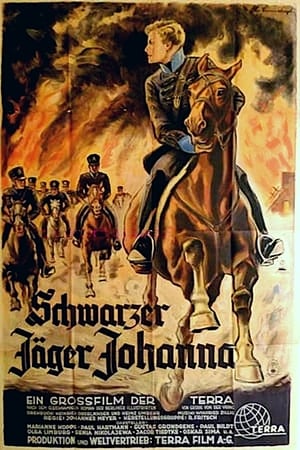
Overview: Germany under Napoleon. Johanna is travelling by stagecoach when one of its occupants, Major Korfes, is arrested by the French militia. Before capture, he gives Johanna a mysterious letter. To solve the mystery, she joins the German corps as the “Black Hunter”. A fantastic breeches role for the lesbian Marianne Hoppe, who two years later, married her gay film partner Gustav Gründgens to prevent persecution by the Nazis.
Genres: Drama
Original Language: de
Release Date: 1934-09-05
Popularity:

The Judas of Tyrol

Overview: In the year 1810, the Tyrol is suffering under French occupation. A servant, who believes himself oppressed and disenfranchised by the peasants, dreams of being allowed to play Christ in the yearly Passion Play. Instead, he is forced to play Judas and soon the lines of reality blur: he betrays the location of Andreas Hofer, hidden by the farmers, breaks under the weight of his guilt and suffers Judas' fate.
Genres: History
Original Language: de
Release Date: 1933-08-25
Popularity:

Heideschulmeister Uwe Karsten

Overview:
Genres: Drama
Original Language: de
Release Date: 1933-11-03
Popularity:

Anschlag auf Schweda

Overview:
Genres: Drama
Original Language: de
Release Date: 1935-11-05
Popularity:

Die Werft zum Grauen Hecht

Overview:
Genres: Drama
Original Language: de
Release Date: 1935-08-21
Popularity:
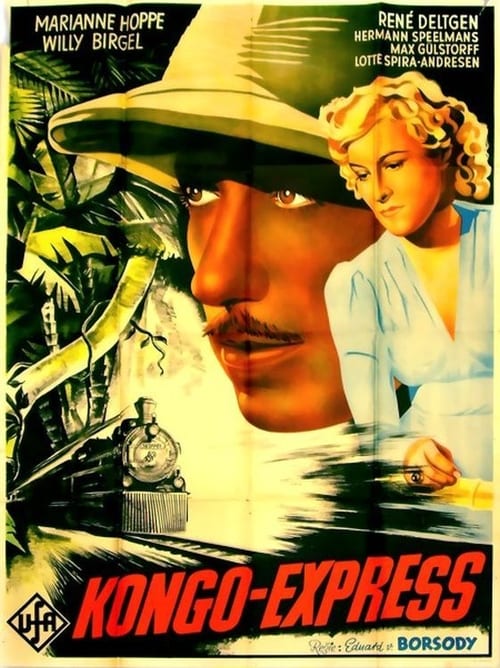
Kongo-Express

Overview:
Genres: Adventure
Original Language: de
Release Date: 1939-12-15
Popularity:
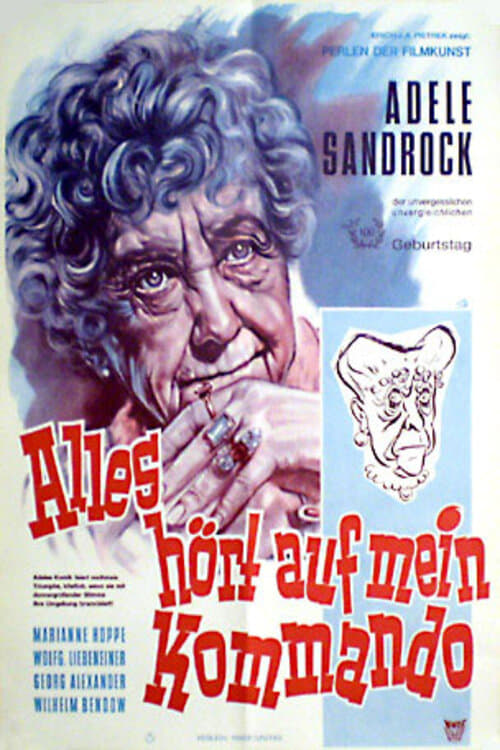
Alles hört auf mein Kommando

Overview:
Genres: Comedy
Original Language: de
Release Date: 1935-01-08
Popularity:

Die Mission

Overview:
Genres: Drama
Original Language: de
Release Date: 1967-03-29
Popularity:
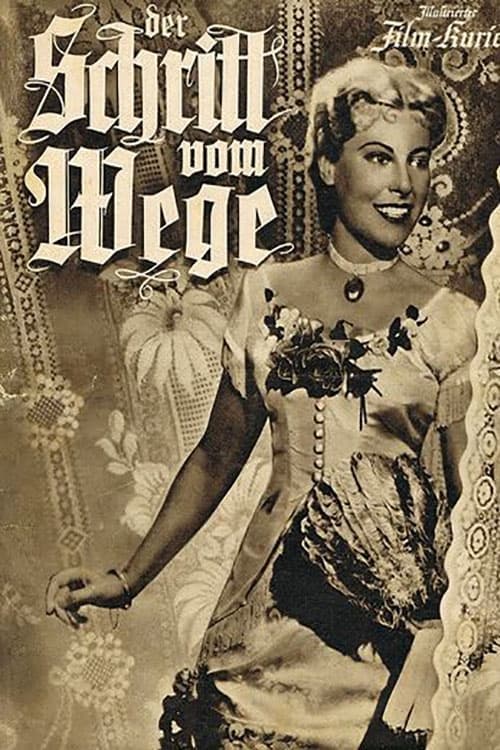
Der Schritt vom Wege

Overview: Theodor Fontane's novel about a young girl who as a teenager marries a stiff bureaucrat, has a love affair out of boredom and loneliness and has to suffer the consequences years later should be well known.
Genres: Drama
Original Language: de
Release Date: 1939-02-09
Popularity:

Ich brauche Dich

Overview: The actress Julia Bach is married to the famous director, Professor Paulus Allmann; however, no one is to know about the marriage. Julia doesn't want a career simply because she has a famous spouse. For that reason, Paulus always has to go on his concert tours alone. It's no wonder then, that he soon starts to feel neglected. These feelings of neglect are encouraged by his ex-wife Hedi, who's always hanging around. When Paulus one day forgets his wife's birthday, she goes on the rampage in the presence of guests. Wounded, Paulus leaves their home. Julia thinks there's only one way to save their marriage: for one year -- until her next birthday -- they are not to see one another. In that period of time, it should be abundantly clear whether they belong together or not.
Genres: Comedy
Original Language: de
Release Date: 1944-05-12
Popularity:
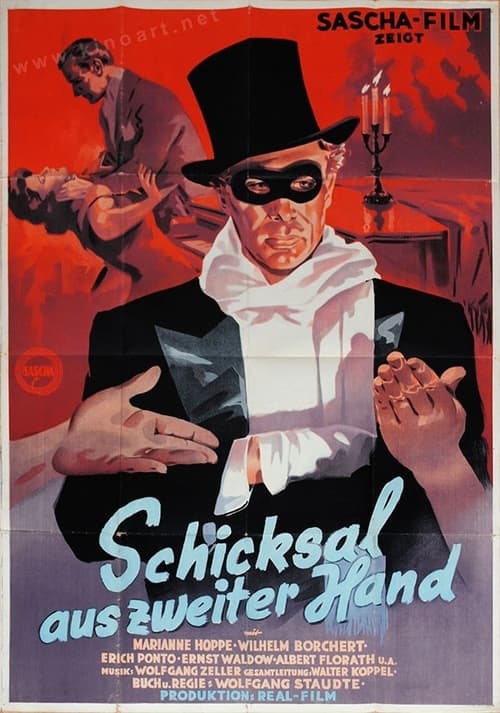
Schicksal aus zweiter Hand

Overview: A man's life breaks down in pursuit of material success.
Genres: Drama
Original Language: de
Release Date: 1949-10-05
Popularity:

Stimme des Herzens

Overview:
Genres: Drama
Original Language: de
Release Date: 1942-10-27
Popularity:

Der Tod kam als Freund

Overview:
Genres: Thriller
Original Language: de
Release Date: 1991-01-01
Popularity:
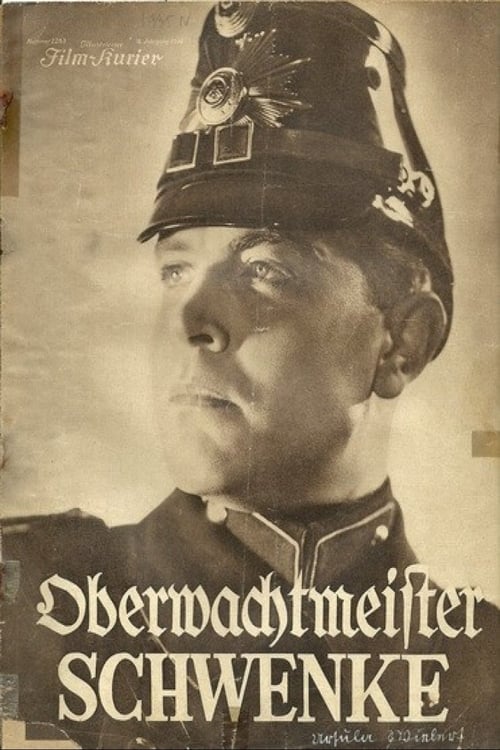
Oberwachtmeister Schwenke

Overview:
Genres: Drama
Original Language: de
Release Date: 1935-01-14
Popularity:
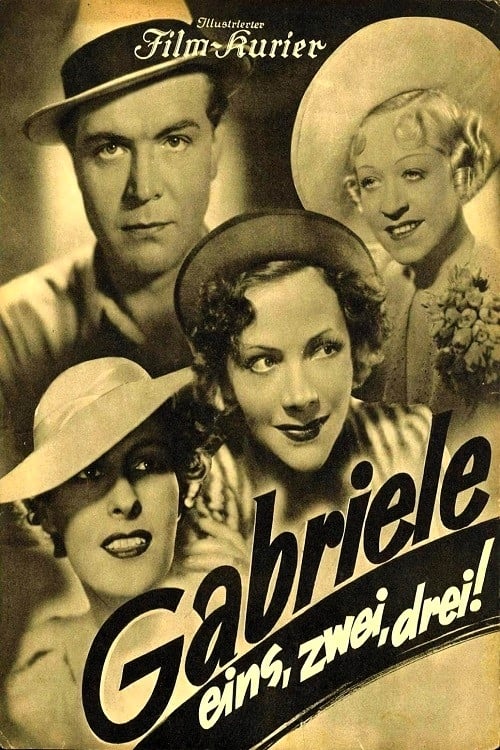
Gabriele eins, zwei, drei

Overview: Gabriele Bordersen, a woman from a good home, wants to see what real life is like among the common folk. With her stewardess Fanny Flint and the tour guide Simikry, she goes off to visit a sailors' bar. Fanny and Gabriele change clothes, which allows the stewardess to introduce herself as a fine lady. When Gabriele asks Fanny to leave with her, Fanny begs her to give her an hour more out of fear of embarrassment. Gabriele, however, is thrown out of the bar by the owner without money and papers; is picked up by the cops; and suffers a nervous breakdown, leading to her being sent to a hospital. No one believes in the slightest that she's really Gabriele Brodersen.
Genres: Comedy
Original Language: de
Release Date: 1937-09-09
Popularity:

Das Leben geht weiter

Overview:
Genres: Drama
Original Language: de
Release Date: 1945-03-01
Popularity:

Der Walzer der Toreros

Overview:
Genres: Comedy
Original Language: de
Release Date: 1962-02-20
Popularity:
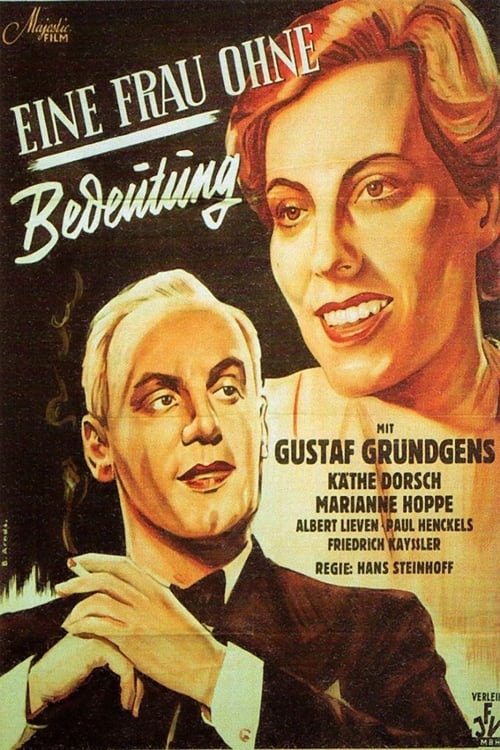
Eine Frau ohne Bedeutung

Overview: Sylvia, the daughter of the pastor Kelvil, is lectrice to Lady Patricia and gets to know the young Lord Harford. They love one another, but their class differences forbid marriage. There's a sharp argument with the father, who afterwards wants to send the young lord abroad. Then Sylvia is offered money to disappear, unaware that she's already pregnant. 18 years later: Sylvia raised her son on her own as best she could. He is now known as Lord Harford, who, besides having the title Lord Illingworth, also has inherited his father's total estate and has now returned from India. Unaware of their identities, the father and son get to know one another; get into a fight; and the young man challenges the father to a duel. In order to prevent that from happening, the mother must now tell each of them the truth about their identities. The film is based on the theatre piece of the same name by Oscar Wilde.
Genres: Comedy
Original Language: de
Release Date: 1936-10-26
Popularity:
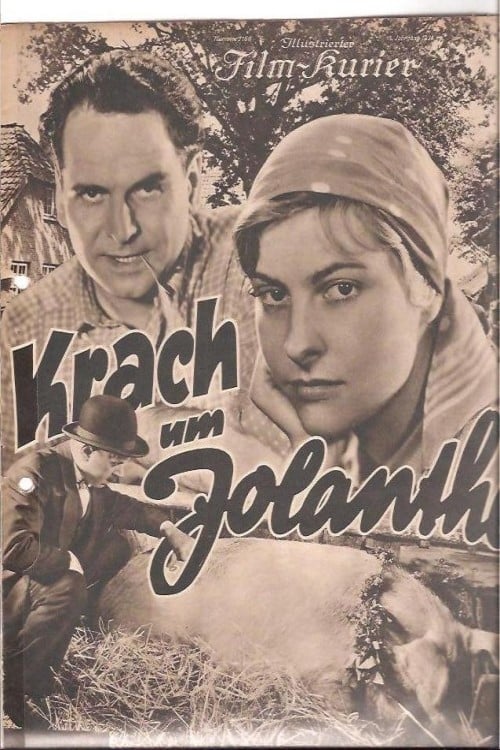
Trouble with Jolanthe

Overview: Comedy about a prize pig, who’s more than a tad responsible for the turbulent adventures in his small town.
Genres: Comedy Romance
Original Language: de
Release Date: 1934-08-17
Popularity:
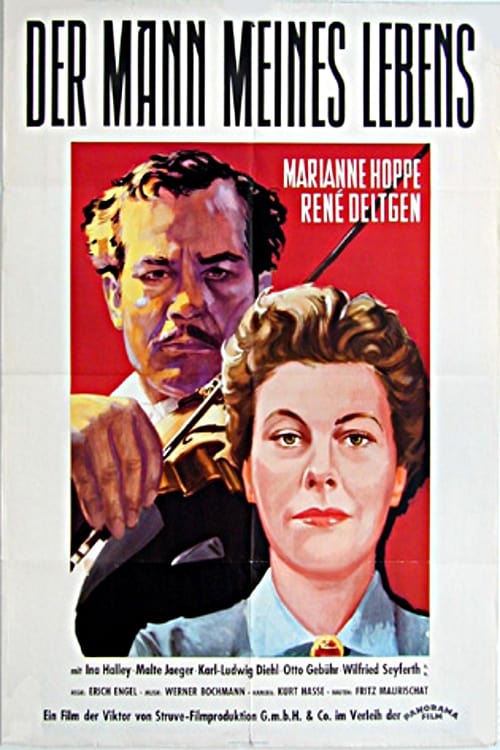
Der Mann meines Lebens

Overview:
Genres: Drama
Original Language: de
Release Date: 1954-03-26
Popularity:

Heiratskandidaten

Overview:
Genres: Comedy
Original Language: de
Release Date: 1975-01-21
Popularity:
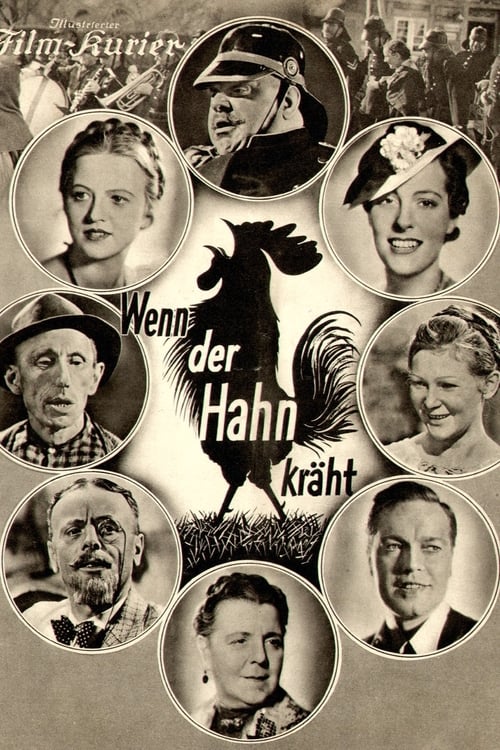
When the Cock Crows

Overview: Early morning romantic excursions in a North German village under the thumb of a crusty old mayor.
Genres: Comedy
Original Language: de
Release Date: 1936-03-23
Popularity:

Im Hause des Kommerzienrates

Overview:
Genres: Drama
Original Language: de
Release Date: 1975-01-01
Popularity:

Das Leben des Horace A.W. Tabor - Ein Stück aus den Tagen der letzten Könige

Overview:
Genres: Drama
Original Language: de
Release Date: 1965-12-05
Popularity:

Der Richter

Overview:
Genres: Drama
Original Language: de
Release Date: 1981-01-01
Popularity:

Bei Thea

Overview: David flies from Tel Aviv to Munich to study. Through a gay friend he meets Thea, the older quirky landlady of a gay pub. He becomes friends with Thea. She recognizes through a ring David wears that he is her grandson.
Genres: Drama
Original Language: de
Release Date: 1988-01-10
Popularity:
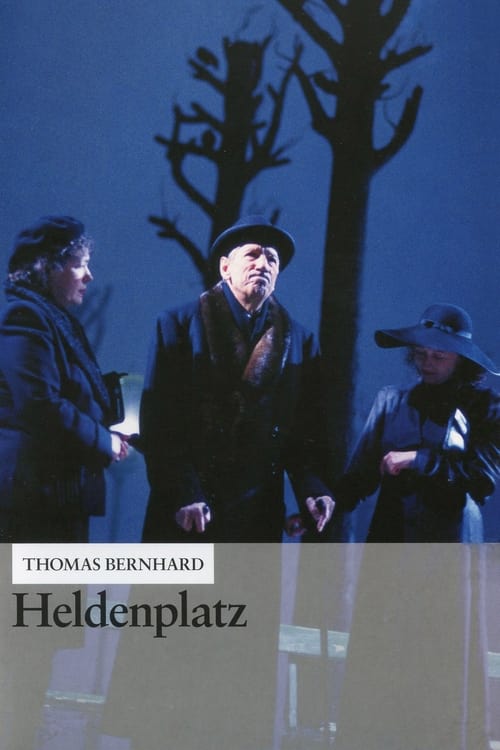
Heldenplatz

Overview: Heldenplatz centers on a Jewish family in the Vienna of 1988. The main character, Professor Josef Schuster, a mathematician, who can no longer stand the anti-Semitism he still finds in Austria 50 years after the Anschluss – commits suicide by jumping out of his apartment window onto the historic Heldenplatz before the play begins.
Genres: Drama
Original Language: de
Release Date: 1989-01-01
Popularity:

Andere Zeiten - andere Sitten

Overview:
Genres: Music
Original Language: de
Release Date: 1967-11-16
Popularity:

Marianne and Sophie

Overview: Marianne and Sophie have had enough. The two elderly ladies from Nuremberg do not feel like they are old, although both of their sons obviously want to make them old. Now the two old ladies have had enough. Fed up with their sons who bully them, Marianne and Sophie decide to go on a journey and leave everything behind. Sofie cancels her life insurance, buys a Mercedes-Benz with a caravan with her last belongings and sets off on a long journey with Marianne & her animals.
Genres: Comedy
Original Language: de
Release Date: 1983-05-13
Popularity:

Rose Bernd

Overview:
Genres: No genres available
Original Language: de
Release Date: 1962-11-15
Popularity:

Tag für Tag

Overview:
Genres: Drama
Original Language: de
Release Date: 1969-01-02
Popularity:

Briefe nach Luzern

Overview:
Genres: Drama
Original Language: de
Release Date: 1966-09-07
Popularity:

König Ödipus

Overview:
Genres: Drama
Original Language: de
Release Date: 1963-05-04
Popularity:

Harlekinade

Overview:
Genres: Comedy
Original Language: de
Release Date: 1964-05-15
Popularity:

König Richard II

Overview:
Genres: Drama
Original Language: de
Release Date: 1968-03-03
Popularity:
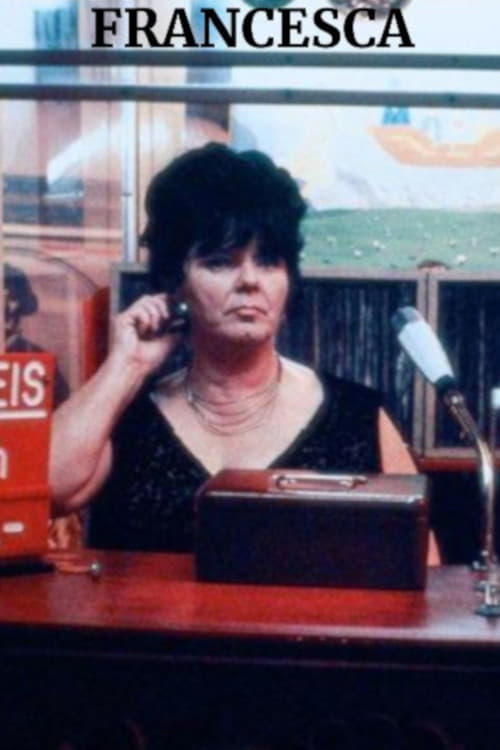
Francesca

Overview: A group of aging friends, foes, and former colleagues gather to celebrate and deride the life of 80-year-old actress Francesca on her birthday.
Genres: Comedy
Original Language: de
Release Date: 1987-06-11
Popularity:

A Winter's Tale

Overview:
Genres: Drama
Original Language: de
Release Date: 1965-12-26
Popularity:

Er-Götz-liches

Overview: Episodic film based on four plays (‘Der Hund im Hirn’, ‘Lohengrin’, ‘Der Mörder’, and ‘Minna Magdalena’) by Curt Goetz, each with Carl-Heinz Schroth in the leading role.
Genres: Comedy TV Movie
Original Language: de
Release Date: 1984-02-12
Popularity:

Die Teilnahme

Overview:
Genres: Drama
Original Language: de
Release Date: 1964-05-07
Popularity:

Die Baronin - Fontane machte sie unsterblich

Overview:
Genres: Drama
Original Language: de
Release Date: 1981-01-13
Popularity:
